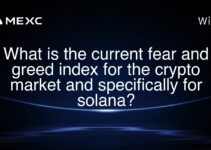Cryptocurrency is considered halal, or permissible according to Islamic law, under certain conditions. The primary reason is that cryptocurrencies like Bitcoin and Ethereum operate on blockchain technology, which ensures transparency and traceability, aligning with the Islamic finance principles of fairness and honesty. However, the halal status of cryptocurrencies can depend on their use and the nature of each specific cryptocurrency, as they must not involve interest (riba), gambling (maisir), and uncertainty (gharar).
Importance of Halal Cryptocurrency to Investors and Traders
Understanding whether cryptocurrencies are halal is crucial for Muslim investors and traders who want to ensure their financial activities align with Islamic principles. The global Muslim population, which accounts for about a quarter of the world’s population, shows increasing interest in the financial markets, including the burgeoning field of cryptocurrencies. Ensuring investments are Sharia-compliant is not only a religious obligation but also opens the market to significant capital inflow from Islamic investors.
Real-World Examples and Practical Applications
Sharia-Compliant Crypto Exchanges
As of 2025, several crypto exchanges have been established that are fully compliant with Islamic law, such as the UAE-based HalalChain and the Malaysian platform, HelloGold. These platforms ensure that all listed cryptocurrencies and transactions comply with Sharia principles, avoiding investments in companies involved with alcohol, gambling, and other prohibitive sectors.
Islamic Cryptocurrencies
Islamic coins like OneGram, which are backed by physical assets like gold, provide a halal alternative to traditional cryptocurrencies that might be speculative. Each OneGram coin is backed by a gram of gold, ensuring that the coin has intrinsic value and is not subject to excessive volatility, thus aligning with the Islamic prohibition against excessive uncertainty.
Blockchain Technology in Zakat Collection
Blockchain technology is also being utilized to collect and distribute Zakat (charity) more efficiently and transparently. For instance, the Zakat Foundation in Saudi Arabia has adopted blockchain technology to track the distribution of funds, ensuring that they are used appropriately and reach the intended beneficiaries, which is a core requirement in Islamic charity.
Data and Statistics
According to a 2025 report by the Islamic Finance Resource Center, investments in Sharia-compliant financial products have increased by 15% annually over the past five years, with a significant portion of this growth attributed to halal-certified digital assets. Moreover, a survey conducted by the Global Islamic Finance Report (GIFR) indicates that 70% of Muslim investors would prefer investing in a cryptocurrency if it is certified as halal.
Conclusion and Key Takeaways
Cryptocurrencies can be considered halal if they adhere to the key principles of Islamic finance. This includes avoiding investments in prohibited industries, ensuring transactions are backed by real, tangible assets, and maintaining transparency to avoid uncertainty and deceit. The development of Sharia-compliant cryptocurrencies and crypto exchanges has opened new avenues for Muslim investors, aligning modern financial practices with traditional Islamic values. As the market for Islamic financial products grows, the integration of halal cryptocurrencies is likely to expand, offering new opportunities for inclusive financial growth that respects religious guidelines.
For Muslim investors looking to enter the cryptocurrency market, it is crucial to seek out investments that are specifically certified as halal, and to stay informed about the evolving landscape of Islamic finance in the digital age. By doing so, they can participate in the financial markets while adhering to their ethical and religious principles.
DISCLAIMER
Article(s) displayed above is/are generated by artificial intelligence (AI) and may not be manually reviewed by a member of the MEXC team before it is published. The content displayed above does not represent the views of MEXC or its affiliates. Similarly, MEXC does not endorse the accuracy or truthfulness of the above data. Under no circumstance should reliance be placed on the above information. You are recommended to consult a professional, independent advisor where necessary.



